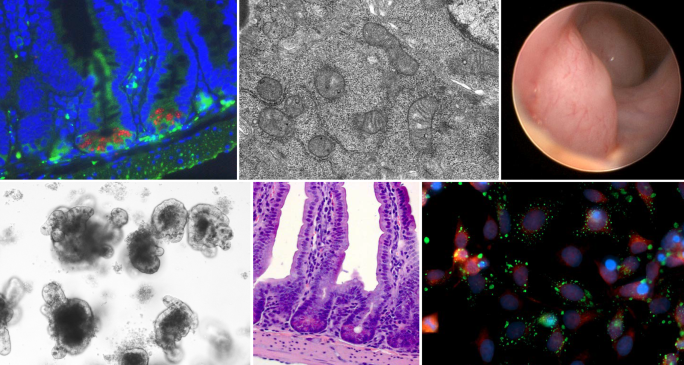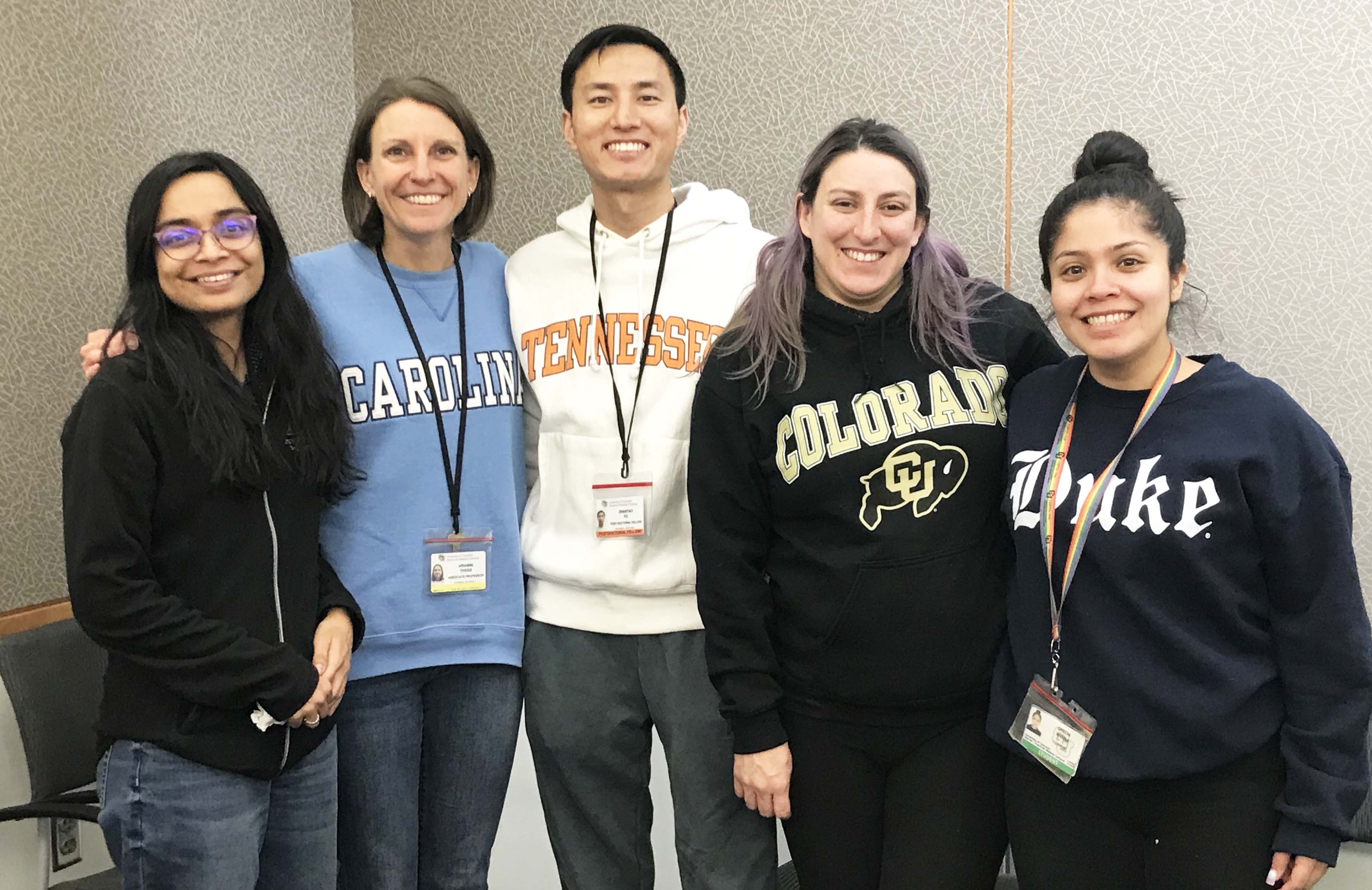
Theiss Lab
The overall goal of the Theiss Lab is to elucidate the role and mechanism whereby mitochondrial signaling pathways in intestinal epithelial cells contribute to gastrointestinal diseases, specifically inflammatory bowel diseases (IBD), colitis-associated cancer, and colorectal tumorigenesis. Results from our studies aim to further our understanding of intestinal homeostasis originating at the organellar (mitochondria) level and to identify novel therapeutic targets with translational utility in patients with IBD and who are at risk of developing colon cancer.

Research Summary
Mitochondria are multifunctional organelles involved in energy production, reactive oxygen species production, induction of apoptosis, and cellular signaling in response to external stimuli. The Theiss Lab is especially interested in the mitochondria of intestinal epithelial cells. These cells form a protective barrier from luminal contents and the underlying intestinal tissue. It is well-established that intestinal epithelial cell homeostasis is altered in IBD and colorectal cancer. In fact, loss of barrier function is a key pathway in the pathogenesis of IBD and ~95% of colorectal cancers originate in the intestinal epithelium. We focus on furthering our understanding of how mitochondrial health influences inflammation in the intestine and gut microbiota composition/health. In addition, we study the initiation/progression of colorectal cancer in response to well-established cancer risk factors: chronic inflammation and obesity.
Three areas of research currently underway in the lab supporting our overall goal are:
- Elucidating the role of mitochondrial dysfunction in the pathogenesis of Crohn’s disease (a type of IBD). We are specifically interested in the intercommunication between specialized secretory epithelial cells called Paneth cells and the intestinal stem cells and how this is altered during mitochondrial damage in either cell type and how this triggers inflammation.
- Identifying molecular communication between epithelial cell mitochondria and luminal microbiota to influence intestinal homeostasis. This includes metabolites derived from gut microbiota and antimicrobial peptides released by intestinal epithelial cells to shape host/microbiota interactions.
- Identifying the molecular pathways induced in the colon epithelial cells by adipose tissue during obesity, thereby conferring initiation of cancer. Key circulating factors released by obese adipose tissue are taken up by colonic epithelial cells and alter mitochondrial metabolism and stemness pathways.
- Testing novel mitochondrial-targeted therapeutics in preclinical models of colorectal cancer that could inform the chemical structure of future pharmacological agents.
To accomplish these studies, the Theiss Lab utilizes human intestinal mucosal biopsies, novel mouse models of intestinal inflammation, cell culture, and intestinal organoids and colorectal cancer tumor organoids. We actively collaborate with research programs on campus including The GI and Liver Innate Immune Programs (GALIIP), The University of Colorado Cancer Center (UCCC), The Stem Cell and Organoids Research Exchange (SCORE), and the Nutrition Obesity Research Center (NORC).
Complete List of Published Work:
https://www.ncbi.nlm.nih.gov/myncbi/arianne.theiss.1/bibliography/public/
Theiss Lab Contact:
12700 E. 19th Ave. B158
Research Complex 2, 10470B
Aurora, CO 80045
Lab: 303-724-7255
Arianne Theiss:
[email protected]
Office: 303-724-7254

